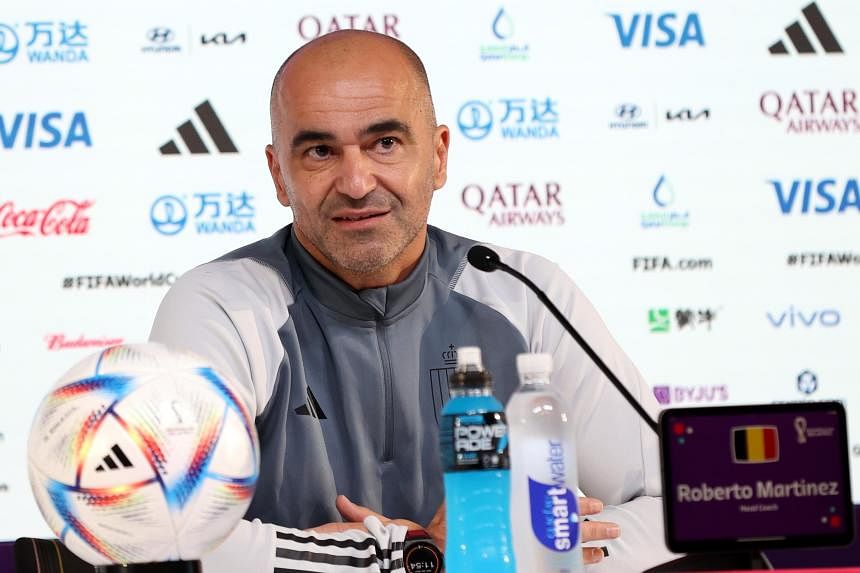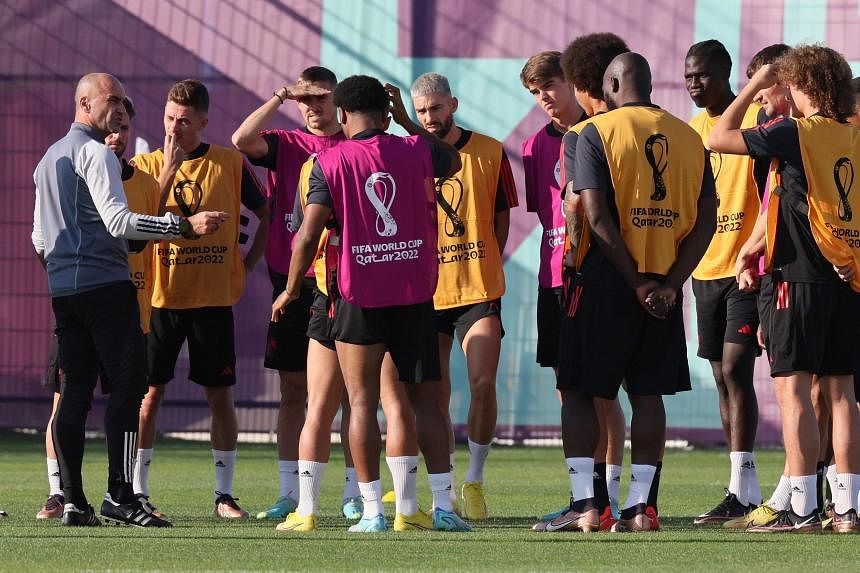DOHA – Belgium coach Roberto Martinez says that high-risk tactics are responsible for a string of upsets at the Qatar World Cup.
He told Xinhua on Saturday in a pre-match press conference that he believes more teams are pushing for wins in Qatar, rather than settling for draws.
Saudi Arabia caused one of the biggest upsets in World Cup history by beating Argentina 2-1, which was followed by Japan beating Germany by the same score.
Belgium came through their first game with a 1-0 win over Canada, despite 12 fewer attempts at goal than their opponents.
The 49-year-old is the most successful national coach in Belgian history, having won about 70 per cent of his more than 70 games in charge. They include a run to the semi-finals at the 2018 edition.
“Teams want to win games. They’re prepared to take risks, and that’s why we’ve seen surprising results,” he told Xinhua before his side’s shock 2-0 loss to Morocco on Sunday. “You see more and more teams want to be technically playing from the back. Teams want to press high.
“The pitch is bigger than it was in 2018, and from that position you see a completely different game and the counter-attack transition becomes more important than it was before.”
Fifa’s technical study group, in contrast, said on Saturday that the high number of 0-0 draws has been due to teams’ fear of suffering an early setback.
There were five goal-less matches in the first 20 games in Qatar, already just two short of matching the record amount in a World Cup.
There was only one 0-0 stalemate in the 2018 tournament – between eventual winners France and Denmark.
“It’s because teams don’t want to take too much risk at the beginning,” said former Nigeria international Sunday Oliseh.
“Past data shows about 70 per cent of teams who lose their first game go out in the group stage and they’re all aware of that.”
Uruguay’s match with South Korea last Thursday was the first World Cup game to not even see a shot on target in the 21st century.
“Many teams are relying on a cautious approach,” said veteran Italian coach Alberto Zaccheroni.
“Lots of teams fielded five defenders... They wanted to assure at least a point from their first game and, if a chance came along, try and grab it to win the game.”
Despite England’s 6-2 rout of Iran and Spain’s 7-0 thrashing of Costa Rica, there have been fewer goals per game in Qatar than in Russia or in Brazil in 2014.
Meanwhile, in addition to tactical variance, Martinez identified the format of the World Cup as a major factor in the surprise results.
The 2022 World Cup is the first to be held in December, with players coming straight from their club teams rather than spending extended periods in national team training camps.
“So rather than having that preparation for a World Cup where you’ve got three friendlies and then you’ve got four weeks to get every player in optimal condition, the teams need to get ready while they’re in the tournament. And that’s dangerous because it can cost you points,” Martinez said. XINHUA, AFP


